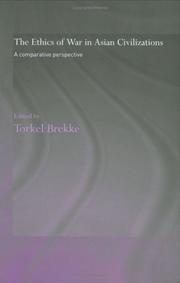| Listing 1 - 3 of 3 |
Sort by
|
Multi
ISBN: 9780521766258 0521766257 9780521149792 0521149797 9781139019620 9781139223768 1139223763 1139019627 1139209256 1107224993 1280568615 1139222058 9786613598219 1139217240 1139214160 1139220330 9781280568619 Year: 2012 Publisher: Cambridge New York Cambridge University Press
Abstract | Keywords | Export | Availability | Bookmark
 Loading...
Loading...Choose an application
- Reference Manager
- EndNote
- RefWorks (Direct export to RefWorks)
This book investigates the origins of fundamentalism, outlining its characteristics and the history of key fundamentalist movements around the world, considering examples from Christianity, Islam, Buddhism and Hinduism. The book argues that fundamentalism develops when modern lay religious leaders challenge the authority of secular states and traditional religious establishments. These new leaders and their followers seek to infuse religious values and practices into all spheres, especially law, politics, education and science. The patterns of religious authority and leadership that characterize fundamentalism have their roots in a Christian context but were globalized through intense intercultural contacts after the mid-nineteenth century. Fundamentalism is a thoroughly modern and global phenomenon because it presupposes the globalization of ideas and practices concerning religious leadership and organization, as well as universal changes in the relationship of religion to modern societies and states.
Religious studies --- Religious fundamentalism. --- Religion. --- Religion, Primitive --- Atheism --- Irreligion --- Religions --- Theology --- Fundamentalism, Religious --- Fundamentalist movements, Religious --- Religion --- Arts and Humanities

ISBN: 1134291523 1280374071 9786610374076 0203482212 9780203482216 9781134291526 0415342929 9780415342926 9780415544375 0415544378 9781280374074 6610374074 9781134291472 9781134291519 1134291515 Year: 2006 Publisher: London New York Routledge
Abstract | Keywords | Export | Availability | Bookmark
 Loading...
Loading...Choose an application
- Reference Manager
- EndNote
- RefWorks (Direct export to RefWorks)
This book explores how issues of ethics in war and warfare have been treated by major ethical traditions of Asia. It opens a discussion about whether there are universal standards in the ideologies of warfare between the major religious traditions of the world.While the chapters are written by specialists in Asian cultures, some of the conceptual apparatus is drawn from the scholarly discourse on just war, developed in the study of the ethical tradition of Christianity. Taking a comparative approach, the book looks at six different Asian religious, philosophical and political traditi
Just war doctrine. --- War --- War (in religion, folk-lore, etc.) --- War and religion --- Armed conflict (War) --- Conflict, Armed (War) --- Fighting --- Hostilities --- Wars --- International relations --- Military art and science --- Peace --- Jus ad bellum --- War (Philosophy) --- Moral and ethical aspects --- Religious aspects. --- Religious aspects
Book
Year: 2002 Publisher: London, United Kingdom : Taylor & Francis,
Abstract | Keywords | Export | Availability | Bookmark
 Loading...
Loading...Choose an application
- Reference Manager
- EndNote
- RefWorks (Direct export to RefWorks)
Why did people in North India from the 5th century BC choose to leave the world and join the sect of the Buddha? This is the first book to apply the insights of social psychology in order to understand the religious motivation of the people who constituted the early Buddhist community. It also addresses the more general and theoretically controversial question of how world religions come into being, by focusing on the conversion process of the individual believer.
Religion and sociology. --- Buddhist sanghas. --- Buddhism --- Conversion --- Social aspects. --- Buddhism. --- India.
| Listing 1 - 3 of 3 |
Sort by
|

 Search
Search Feedback
Feedback About UniCat
About UniCat  Help
Help News
News